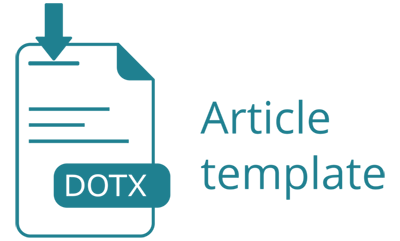Program Pemberdayaan Masyarakat Difabel Melalui Difabel Creative Center di Daarut Tauhiid
DOI:
https://doi.org/10.15575/tamkin.v6i3.24232Keywords:
Empowerment, persons with disabilities, skill boostAbstract
The aim of this research is to find out the process, implementation and results of community empowerment through the disabled creative center (DCC) program which is specifically for people with disabilities in the city of Bandung and is managed by DT – Peduli. The research method uses a descriptive method with a qualitative approach. The results showed that the DCC program took the form of sewing skills training, screen printing training, clothing production, and marketing of products. With the implementation, this meeting is carried out on a scheduled and neatly packaged basis which is inserted with a program of guidance on physical and spiritual motivation in the form of mini seminars, workshops or thematic training guided by successful experts and practitioners and Second, the Disability Workshop is a space to facilitate the potential possessed by the participants or DCC alumni so they can display their superior products or expertise profiles offline and online. As for the results of the DCC program, people with disabilities in the city of Bandung are able to improve their standard of living and are more empowered after participating in the disabled creative center (DCC) program.
References
Aeni, H. N. (2019) Peran organisasi Rehabilitasi Berbasis Masyarakat (RBM) dalam peningkatan interaksi sosial penyandang disabilitas: Studi kasus Kelurahan Cibiru Wetan Kecamatan Cilenyi Kabupaten Bandung. Jurusan Sosiologi Fakultas Ilmu Sosial dan Ilmu Politik Universitas Islam Negeri Sunan Gunung Djati. Bandung
Databoks.katadata.co.id. (2019). Survei Penduduk Antar Sensus (suspas) Jumlah Penduduk Indonesia 2019. Diakses pada 22 oktober 2019 dari data sensus website:https://databoks.katadata.co.id/datapublish/2019/01/04/jumlah-penduduk indonesia-2019-mencapai-267-juta-jiwa.
Hanifah, D. N. (2017) Tindakan kelompok kreatifitas difabel dalam upaya meningkatkan kesejahteraan sosial kaum difabel: penelitian terhadap kelompok kreatifitas difabel Bandung. di Jurusan Sosiologi Fakultas Ilmu Sosial Dan Ilmu Politik. Universitas Islam Negeri Sunan Gunung Djati. Bandung
Herdianti, Y. M. (2018) Peran Pemerintah dalam Meningkatkan Relevansi Pendidikan Penyandang Disabilitas dengan Kebutuhan Lapangan Pekerjaan: Penelitian di Dinas Sosial Provinsi Jawa Barat Balai Rehabilitasi Sosial Penyandang Disabilitas Cibabat Cimahi. Jurusan Sosiologi Fakultas Ilmu Sosial dan Ilmu Politik (FISIP) Universitas Islam Negeri Sunan Gunung Djati. Bandung
Nuraeni, I. (2018). Pemberdayaan Potensi Sosial Masyarakat Muslim Melalui Yayasan Aksi Cepat Tanggap (ACT) Bandung.
Karim, M. A. (2017). Implementasi Kebijakan Pemenuhan Hak-Hak Penyandang disabilitas Di Kota Makassar. Diakses pada 22 oktober 2019 dari website: http://repository.unhas.ac.id/bitstream/handle/123456789/26653/ SKRIPSI MUHAMMAD AFDAL KARIM - E12112273.pdf;jsessionid =25786176835 484CCB914ABF188DCD7C7?sequence=1
Machendrawaty, N. dan Safei, A. A. (2012). Pengembangan Masyarakat Islam. Bandung: PT Remaja Rosdakarya
Mardikanto, T. dan Soebiato, P. (2019) Pemberdayaan Masyarakat Dalan Perspektif Kebijakan Publik, Bandung: Alfabeta.
Sadiah, D. (2015) Metode Penelitian Dakwah Pendekatan Kualitatif dan Kuantitatif. Bandung: PT Remaja Rosdakarya
Suhardono, E. (2018) Teori Peran Konsep, Derivasi, dan Implikasinya, Jakarta: PT Gramedia Pustaka Utama.
Tafsir.com. (2015). Surat An-Nur ayat 61. Diakses pada 24 oktober 2019 dari website: https://tafsirq.com/24-an-nur/ayat-61
Ummi, A. Anwar, S & Aziz, A (2017). Pemberdayaan keluarga sebagai pemberdayaan model masyarakat. Tamkin Jurnal Pengembangan Masyarakat Islam Vol 2. No 1.
UU No. 39 Tahun 1999. Tentang Hak Asasi Manusia (HAM). Diakses pada 29 Oktober 2019.
Downloads
Published
How to Cite
Issue
Section
Citation Check
License
Authors who publish articles in Tamkin: Jurnal Pengembangan Masyarakat Islam agree to the following terms:
- Authors retain copyright of the article and grant the journal right of first publication with the work simultaneously licensed under a CC-BY-SA or The Creative Commons Attribution–ShareAlike License.
- Authors are able to enter into separate, additional contractual arrangements for the non-exclusive distribution of the journal's published version of the work (e.g., post it to an institutional repository or publish it in a book), with an acknowledgment of its initial publication in this journal.
- Authors are permitted and encouraged to post their work online (e.g., in institutional repositories or on their website) prior to and during the submission process, as it can lead to productive exchanges, as well as earlier and greater citation of published work (See The Effect of Open Access).





